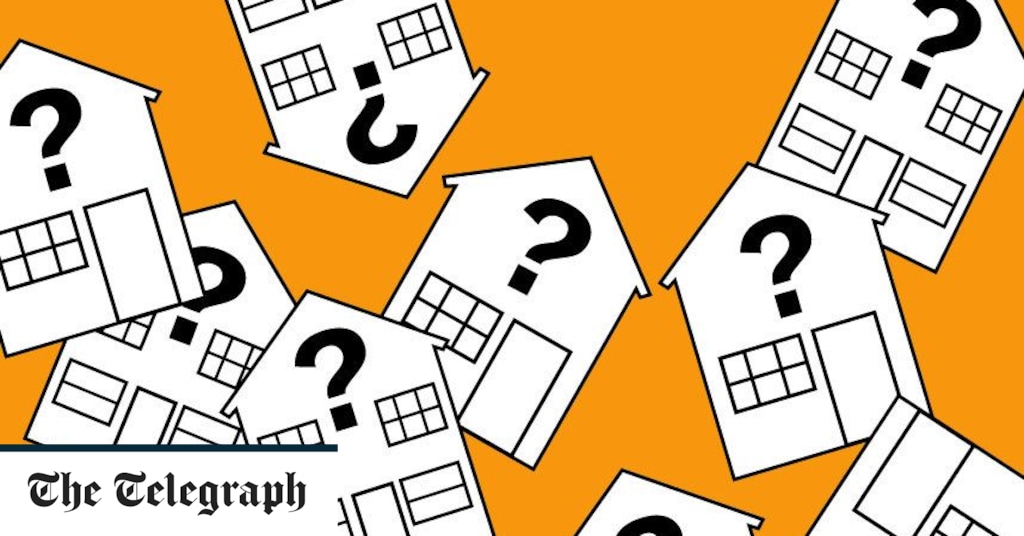Stamp duty is one of the country’s most confusing taxes – riddled with exemptions, surcharges and other quirks. It can be baffling for buyers to figure out what they owe HM Revenue & Customs, and even many lawyers fail to understand the complex rules.
Getting it wrong could leave home buyers with a large and unexpected tax bill in future. Official data shows that the taxman collected £2.7bn in stamp duty between January and March 2019.
Stamp duty applies to most property purchases in England and Northern Ireland, with Scotland and Wales having similar but separate property taxes.
Here Telegraph Money provides expert answers to some of the most commonly-asked stamp duty questions.
‘Do I own multiple properties?’
I am confused how HMRC defines the ownership of multiple properties. We own our old residence, which we are trying to sell, our current residence, on which we paid the stamp duty surcharge, and two other properties, which we rent out.
Do we qualify for a refund prior to the sale of our original residence?
Roger Stock, via email
Providing that you sell your previous main residence within three years of purchasing your current main residence, you would normally qualify for a refund of the three percentage point surcharge previously paid on the purchase of your current main residence, said Mark Homer, of property investment company Progressive Property.
“This would be claimable after you have sold the previous main residence,” he added. “Your buy-to-let properties would not normally affect your ability to claim this refund.”
‘Will I be charged stamp duty on purchase of land?’
I am buying a plot of land to build a house in which I intend to live. Do I have to pay the higher rate of stamp duty and then claim a return once I have sold the house I am living in and have moved into the new build?
Viv Edwin, via email
Mary Beeton of Hamptons International, an estate agent, said: “Generally speaking, building a house incurs far less stamp duty than buying one, as stamp duty is paid on the purchase price of the land rather than the value of the finished home.
"Unless there is an existing dwelling. A dwelling is defined as a building or part of a building that is used or suitable for use as a single dwelling or in the process of being constructed or adapted for use as a dwelling.”
As you are buying a plot of garden land, with no dwellings, the higher rates will not apply.
‘Will buying my ex-partner’s stake in our home cost me thousands?’
I have recently separated from my ex-partner of nine years. We were not married but have a joint mortgage. As part of our separation he has agreed to let me keep our house.
I will be giving him approximately £250,000 to keep the house and take on the mortgage as a single person. Do I have to pay stamp duty despite us paying that when we purchased the house together?
Belinda Riley, via email
Stamp duty will not apply if you transfer property or land to a partner when divorcing or dissolving a civil partnership. However, as you and your former partner were not married, you face a hefty tax bill, Ms Beeton warned.
“As there was no legal agreement or court order you will pay stamp duty land tax on the total chargeable consideration, in this case £250,000,” she said.
‘I’m confused about stamp duty refunds’
I currently own my own home as well as two buy-to-let properties. My girlfriend lives at home with her parents and also owns three buy-to-let properties on her own. We are looking to buy our own home jointly (as tenants in common) and I would like to keep my current home as a buy-to-let.
Will we have to pay the additional stamp duty surcharge when buying our future home, given the new home will replace my current one as my main residence?
Callum Stevens, via email
You must pay the stamp surcharge and would not be able to claim a refund in this instance.
“You will not be able to claim this back as your old home needs to be sold, gifted or otherwise transferred within three years of buying your new home for this surcharge to become refundable,” Mr Homer said.
‘Has my buy-to-let cost me thousands?’
My first property purchase was a buy-to-let investment. I am now about to purchase a second property, which I will live in. I understand that I am required to pay an additional rate of stamp duty on my second purchase, but can this additional stamp duty charge be offset against my capital gains tax liability when I come to sell my investment property further down the line?
Justin Birch, via email
As long as any previous main residence which you may have owned has been disposed of within the last three years you would not need to pay the higher rates of stamp duty, thus not incurring the surcharge, according to Mr Homer.
“If a solicitor is telling you otherwise, I suggest you ask them to revisit their HMRC manuals or consult a stamp duty specialist as many find these rules complex and don’t experience applying some of the lesser-used stamp duty scenarios very frequently,” he said.
‘Property swap has left me baffled’
We have been offered the opportunity to swap houses with a neighbour. They own their house outright while we have a mortgage totalling 45pc of its current value. It this considered a sale or a transfer, and how is stamp duty applied?
Anna Morton, via email
This is considered an exchange of land, meaning you will be liable to pay stamp duty.
Ms Beeton said: “Both parties would need to agree to an exchange of freehold and leasehold interests in land, meaning they are liable to pay stamp duty land tax at the appropriate rate.
“This is calculated based on the chargeable consideration or market value, whichever is greater at the time of the consideration.”
‘Will my extension incur a bill?’
I plan to build on part of my garden. If the land and property is in my name, what is the position on stamp duty?
Barbara Dunford, via comments
Many people use their gardens to build a new home, whether that is a “granny annexe” for a family member or to sell to a third party.
Mr Homer said: “As you already own the part of your garden which you plan to build the new property on, no further stamp duty is due if you don’t sell or transfer the new property and just hold it in your name as it is.”
‘I want to buy my neighbour’s house’
We wish to buy our neighbour’s property, add some of his garden to ours then sell his property. Can we reclaim the second home surcharge?
Julie Kirby, via comments
Given you intend to remain in your current home when purchasing an additional property you will be liable for the stamp duty surcharge and cannot claim this back, Mr Homer said.
‘Does being divorced have an impact?’
I have a share in the ex-matrimonial home that I cannot access until the children are adults. I have no other property. If I buy a home is extra stamp payable?
Carl Studt, via comments
You have a Mesher order in place which outlines how a family home can be used after a divorce. This can mean that the home cannot be sold for a certain period of time, in your case until the children turn 18.
Mr Homer said that the stamp duty rules were changed in November 2017 to allow people with such orders to avoid being hit with the stamp duty surcharge.
“Divorcees in your situation who are subject to a Property Adjustment Order are exempt from paying the three percentage point stamp duty surcharge on a second residential property purchase,” he said.
“Ask your divorce solicitor to confirm that your Mesher order qualifies as a Property Adjustment Order, and if not to apply to the family court to obtain one. Send a copy of this order to the conveyancing solicitor handling the purchase of any new home you decide to purchase in order to avoid the surcharge.”
‘What happens to my commerical property?’
I have a stake in a commercial property. Am I liable for stamp duty on a first property?
Francesca Rutter, via comments
If a person has never owned a residential property but does have an equity share in some commercial buildings (not residential) which are rented out, then they they are not liable to pay the stamp duty surcharge. Mr Homer said these buyers would also receive the first-time buyer stamp duty exemption.
‘How much will my partner cost me?’
I am adding my partner to my mortgage, will they have to pay stamp duty?
MD, via email
Stamp duty is charged on transactions valued at £125,000 or more, so if the transfer of value exceeds this amount then stamp duty will be due.
Pete Mugleston of Online Mortgage Advisor, a broker, said: “Transferring the legal title of a property from a sole name into joint names, sometimes referred to as a transfer of equity, would normally involve the new person who is joining the mortgage incurring some stamp duty fees.
“How much they will pay depends on the value of the property and how much their share will be.”
Stamp duty is paid on the value of the mortgage transferred, not on the overall value of the property. So for a property valued at £500,000 with £400,000 outstanding on the mortgage, adding a partner to the mortgage on a 50-50 basis would incur a stamp duty charge of £1,500. This is based on them taking on £200,000 of the mortgage debt.
To avoid stamp duty the partner could take a stake in the property worth less than £125,000, although this may mean that the couple have unequal stakes in their joint home.
‘I’m a worried first-time buyer’
If I inherit a home, does these mean I lose my first-time buyer stamp duty exemption?
HJ, via email
The short answer is yes.
First-time buyers have been given relief from stamp duty since November 2017, with no tax levied on the first £300,000 and 5pc on the rest. This means that many new buyers can get on the property ladder without incurring any stamp duty charges.
However, the exemption only applies to those who have never owned a stake in any property previously. Mr Homer said: “If an individual inherits a home they would definitely lose their ability to claim first-time buyer stamp duty relief, meaning that they must pay standard rates of stamp duty like everyone else.”
‘How do refunds work?’
If I buy a new property before I have sold my current home, am I liable to pay the surcharge? Can I get a refund later?
SD, via email
The stamp duty surcharge was introduced in April 2016 to dissuade people from purchasing second homes. Anyone buying an additional property in the UK, whether this is a holiday home or a buy-to-let property, is liable to pay an extra three percentage points of stamp duty.
This has left many buyers in the troublesome situation where they have purchased a new property but are yet to sell their existing home. In this case it is likely that the buyer will have to pay the surcharge.
Mr Mugleston said there were a few scenarios where this would not apply. “If the new property is worth less than £40,000, is a mixture of residential and commercial floorspace, or is a ‘moveable’ home such as a houseboat or a mobile home, then stamp duty would not apply,” he said.
If the buyer is not subject to one of these exemptions, the three percentage point surcharge can be claimed back once the original property is sold. Getting a refund is increasingly common: in the third quarter of 2018 there were 8,100 refunds totalling £109m. Buyers have three years to claim this back, Mr Mugleston added.
You must pay the surcharge if you own an interest in a property anywhere in the world.
‘Will my old home cost my partner their exemption?’
I own a home but my partner is a first-time buyer. If we buy together will my partner be liable to pay stamp duty?
PR, via email
This is another common scenario, where one half of a couple is already a homeowner but the partner is not. Mr Homer said in this instance neither party would qualify for the first-time buyer exemption.
“Both purchasers must not have owned any dwellings prior to the purchase in order to qualify, regardless of whether they owned them as tenants in common or as joint tenants,” he said.
This applies whether you are cohabiting partners or married.
‘Unsure about my primary residence?’
We live between two properties. Which do we classify as our ‘main residence’ for stamp duty purposes?
AS, via email
For those who split their lives between two properties, perhaps a family home and summer property, there are potential stamp duty implications as only one can be classified as a main residence.
Mr Homer said there were a range of factors that would be used to determine an individual’s primary home including where they were registered for bank and credit card statements, council tax, utility bills and whether they are on the electoral roll.
For those wishing to change their main residence, all of these should be moved to the "main" address at least six months before any new transactions take place.
‘What if I later rent my home?’
I’m a buying my first home but plan to rent the property out, do I have to pay the surcharge?
DK, via email
As long as the buyer does not already own a property of their own, the three percentage point surcharge does not apply. However, the buyer would not receive the first-time buyer stamp duty exemption, as the property is not intended to be their primary residence.
Mr Mugleston warned that purchasing a buy-to-let property would bar the owner from accessing any first-time buyer schemes in future.
Are you bamboozled by stamp duty? Or have you been left counting the cost of a miscalculated stamp duty bill?
Leave your queries in the comments section below and this article will be updated to answer some of the most frequently-asked questions.
























Comments